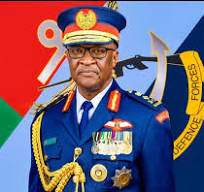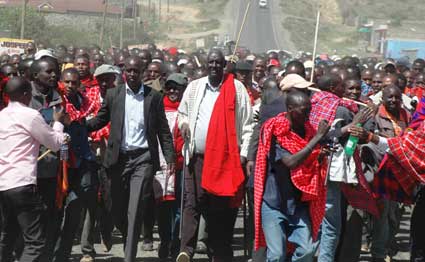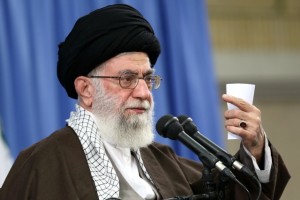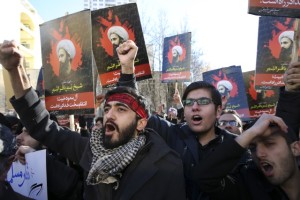Throughout September, as more Christians were slaughtered and persecuted for their religion — not just by the Islamic State but by “everyday” Muslims from all around the world — increasing numbers of people and organizations called for action. Meanwhile, those best placed to respond — chief among them U.S. President Barack Obama and Pope Francis — did nothing.
“Why, we ask the western world, why not raise one’s voice over so much ferocity and injustice?” asked Cardinal Angelo Bagnasco, the head of the Italian Bishops Conference.
Melkite Greek Catholic Patriarch Gregory III said: “I do not understand why the world does not raise its voice against such acts of brutality.”
As one report put it: “Human rights activists see it. Foreign leaders see it. And more than 80 members of the U.S. Congress see it. Together, they are pressuring the leader of the free world [President Obama] to declare there is a Christian genocide going on in the Middle East.”
In response, the White House said it was preparing to release a statement accusing the Islamic State of committing genocide against religious minorities, naming and recognizing various groups, such as the Yazidis, as victims. However, Christians are apparently not going to be included as victims, as Obama officials argue that Christians “do not appear to meet the high bar set out in the genocide treaty.”
Meanwhile, Father Behnam Benoka, an Iraqi priest, explained in a detailed letter to Pope Francis the horrors Mideast Christians are experiencing. To his joy, the pope called the Middle Eastern priest and told him that “I will never leave you.” As Benoka put it, “He called me. He told me certainly, sure I am with you, I will don’t forget you… I will make all possible to help you.”
However, later in September, when Pope Francis stood before the world at the United Nations, his energy was, once again, spent on defending the environment. In his entire speech, which lasted nearly 50 minutes, only once did Francis make reference to persecuted Christians — and even then they did not receive special attention but, in the same breath, their sufferings were merged in the same sentence with the supposedly equal sufferings of “members of the majority religion,” that is, Sunni Muslims (the only group not to be attacked by the Islamic State, a Sunni organization):
I must renew my repeated appeals regarding to the painful situation of the entire Middle East, North Africa and other African countries, where Christians, together with other cultural or ethnic groups, and even members of the majority religion who have no desire to be caught up in hatred and folly, have been forced to witness the destruction of their places of worship, their cultural and religious heritage, their houses and property, and have faced the alternative either of fleeing or of paying for their adhesion to good and to peace by their own lives, or by enslavement.
Yet, as the following roundup from September shows, “members of the majority religion” –Sunnis — are not being slaughtered, beheaded, and raped for their faith; are not having their mosques bombed and burned; are not being jailed or killed for apostasy, blasphemy, or proselytization.
Savagery and Slaughter
Uganda: Three Muslim men beat and raped a 19-year-old Christian woman. The young student was returning home from St. Mary’s Teachers College in Bukedea when she was ambushed by three masked men. “I tried to scream, but one blocked my mouth and another slapped me as they forcefully dragged me off the footpath,” said the victim. “I heard one of them telling the others that I should be killed because my parents deserted Islam. But another said, ‘But we are not sure whether this girl is a Christian.'” Instead of killing her, they raped and beat her so severely that she is still receiving hospital treatment for her injuries.
United States: Freddy Akoa, a 49-year-old Christian healthcare worker in Portland, Maine, was savagely beaten to death in his own home by three Muslims. Found next to Akoa’s body was his blood-splattered Bible. The slain had cuts and bruises all over his body and a fatal head trauma. Internally, he suffered 22 rib fractures and a lacerated liver. The police affidavit stated that Akoa “had been beaten and kicked in the head, and bashed in the head with a piece of furniture in an assault that continued relentlessly for hours.” Akoa was apparently throwing a party before or during the attack. The three assailants were all Muslim refugees of Somali origin. In recent times, both in America and Europe, several “refugees” have turned out to be Islamic terrorists, some with direct ties to ISIS. (A faction of Al Shabaab, Somalia’s premiere jihadi organization, recently pledged allegiance to ISIS.)
Syria: A Christian from the Qaryatain village in the province of Homs was executed by the Islamic State for refusing to obey the dhimmi [second-class, “tolerated”] conditions imposed on Christian villagers. ISIS also killed a Christian priest, chopped his body into pieces, and sent the pieces back to his family in a box. Earlier ISIS had kidnapped the priest and demanded a ransom of $120,000 from his family, which finally managed to raise the ransom money after two months. But after paying it, ISIS reneged on their word and brutally killed the Catholic priest anyway.
Pakistan: The Muslim family of a woman who converted to Christianity and married a Christianmurdered her husband and wounded the young woman. Aleem Masih, 28, married Nadia, 23, last year after she put her faith in Christ. The couple then fled their village as the woman’s family sought “to avenge the shame their daughter had brought upon them by recanting Islam and marrying a Christian,” said a lawyer involved in the case. Eventually Nadia’s father, Muhammad Din Meo, and his henchmen managed to abduct the couple and took them to a nearby farm. “The Muslim men first brutally tortured the couple with fists and kicks and then thrice shot Aleem Masih — one bullet hit him in his ankle, the second in the ribs while the third targeted his face,” the attorney said. “Nadia was shot in the abdomen.” The Muslim relatives left believing they had killed the couple. “The attackers returned to their village and publicly proclaimed that they had avenged their humiliation and restored the pride of the Muslims by killing the couple in cold blood.” Police, however, found Nadia still breathing when they arrived at the farm. “She was shifted to the General Hospital in Lahore, where she is fighting for her life after a major operation in which two bullets were removed from her abdomen.” A large number of Muslims were gathered at the hospital when the critically wounded woman arrived. “The mob, some of them armed with weapons, was shouting furious anti-Christian slogans…. They were also praising Azhar for restoring the pride of the Muslim Ummah [community] and saying that he had earned his place in paradise for killing an infidel.”
Philippines: Islamic terrorists from the jihadi group Abu Sayyaf were suspected in the bombingof a passenger bus in the predominantly Christian city of Zamboanga on September 18 that killed a 14-year-old girl and wounded 33 others. Intelligence sources had warned that Abu Sayyaf would be targeting cities and communities with heavy Christian populations. Only 20% of Zamboanga is Muslim, and the rest almost entirely Christian (mostly Catholic).
Egypt: The mother of a Coptic priest was robbed and killed in Fekria city in Minya.
Muslim Attacks on Christian Churches
United States: On Sunday, September 13, 40-year-old Rasheed Abdul Aziz was arrested forthreatening the Corinth Missionary Baptist Church in Bullard, Texas. The Muslim-American had a gun and was dressed for combat — complete with camouflage helmet, camouflage pants, tactical vest and boots — when he entered the church around 1 p.m. According to Pastor John Johnson, Aziz said that Allah had told him to “slay infidels” and that “people are going to die today.” The pastor added, “I believe that his intent was when he came to our church was to actually kill somebody.”
Tanzania: During the course of one week, six Christian churches were burned down. On September 23, three churches were set ablaze: The Living Waters International Church, Buyekera Pentecostal Assemblies of God, and Evangelical Assemblies of God Tanzania Church. Three days later, on September 26, another three churches were also set ablaze: The Evangelical Lutheran Church, Kitundu Roman Catholic Church, and Katoro Pentecostal Assemblies of God Church. According to a local source, “The people woke up on 27th Sep to find their sanctuaries burnt down… The scenarios are the same; unknown people broke in, piled things onto the altar, poured petrol over it and set it alight. They fled before anyone could respond and so remain unknown.” The east African nation is mostly comprised of Christians and Muslims, though the ratio is disputed.
Bethlehem: Muslims set fire to the St. Charbel Monastery. Sobhy Makhoul, the chancellor of the Maronite Patriarchate in Jerusalem, said, “It was an act of arson, not a fire caused by an electrical problem [as local authorities had claimed], an act of sectarian vandalism by radical Muslims.” The fire caused no casualties or injuries — fortunately the building was unoccupied and under renovation — but the damage is evident, and the local Christian community evidently feared further violence. The Maronite leader added that, “The attack is… anti-Christian, like many other incidents across the Middle East. Extremist groups operate in the area, including some Hamas cells.”
Iraq: A report that discusses how one Christian is slaughtered every five minutes in Iraq, adds that, “Islamic State Militants in Iraq are using Christian churches as torture chambers where they force Christians to either convert to Islam or die.”
Syria: Within days of capturing the city of Qaryatain, the Islamic State destroyed an ancient Catholic monastery and threw away the remains of a revered saint. The Sunni terror group then gave an ultimatum to the Christians in Qaryatain to either pay jizya (extortion money), convert to Islam, or leave.

Islamic State jihadists in the midst of destroying the ancient Mar Elian monastery in Qaryatain, Syria.
|
Yemen: A day after a Catholic church in Aden was vandalized, another group of unidentified assailants set the Christian building “in flames,” in the words of a witness. Of the 22 churches that operated in Aden before 1967, when the city was a British colony, only a few remain open, used rarely by foreign workers and African refugees. The now-torched St. Joseph Church was one of those few.
Indonesia: On Sunday, September 27, the GKI Yasmin Church in Bogor held its 100th open-air service since 2008, when local Muslims had begun complaining that the church existed. Even though the church was fully registered, the authorities obligingly closed it. In December 2010, the Indonesian Supreme Court ordered the church to be reopened, but the mayor of Bogor refused to comply and kept it sealed off. Since then, the congregation has been holding Sunday services at the homes of members, and occasionally on the street, to the usual jeers and attacks by Muslim mobs.
Muslim Attacks on Christian Freedom
(Apostasy, Blasphemy, and Proselytization)
Uganda: A 36-year-old mother of eight requested prayer after area Muslims forced her to return to Islam, or lose her children and be killed. Although Madina remained Christian after her husband abandoned her a decade ago for her apostasy from Islam, she returned to Islam in September: “The relatives of my husband threatened to kill me and take away the children if I refused to go back to Islam. They said, ‘We are not going to lose our children to Christianity. We better kill you and get back the children.’… I have nowhere to go with my children, so I have decided to return to Islam to save the children and myself. I know Issa [Jesus] will remember me one day.”
United Kingdom: A Pakistani man, his wife, and their six children are suffering “an appalling ordeal at the hands of neighbours who regard them as blasphemers.” Their “crime” is converting to Christianity— more than 20 years ago. Despite being “prisoners in their own home after being attacked in the street, having their car windscreens repeatedly smashed and eggs thrown at their windows” the Christian family said that both police and the Anglican church have failed to provide any meaningful support and are “reluctant to treat the problem as a religious hate crime.” Nissar Hussain, the father, said, “Our lives have been sabotaged and this shouldn’t happen in the United Kingdom. We live in a free democratic society and what they are doing to us is abhorrent.”
Turkey: Since August 27, as many as 15 churches received death threats for “denying Allah.” Even so, “Threats are not anything new for the Protestant community who live in this country and want to raise their children here,” said church leaders. As former Muslims, many of the congregation, apostates from Islam, were threatened with beheading. The messages accuse the Christians of having “chosen the path that denies Allah” and “dragged others into believing as you do… As heretics you have increased your number with ignorant followers.” One of the messages depicted the Islamic State flag along with the words: “Perverted infidels, the time that we will strike your necks is soon. May Allah receive the glory and the praise.”
Pakistan: Police arrested a Christian brick kiln worker, Pervaiz Masih, in the Kasur District of Punjab province, after a Muslim business rival falsely accused him of insulting the prophet of Islam, Muhammad. Pervaiz, a father of four, including a seven-month-old boy, fled his home after Muhammad Kahlid filed a report, which said that he had made derogatory remarks about Muhammad during a dispute. Police detained four of Pervaiz’s relatives; then officers dragged his wife into the streets and ripped off her clothing as they tried to get information about her husband’s whereabouts. Police also beat local Christians and raided Christian homes for information in Pervaiz’s town. Pervaiz eventually handed himself over to police in order that his relatives be released.
Ethiopia: A group of 15 young Christians were attacked and arrested for engaging in evangelism in eastern Ethiopia. Separately, six Christian leaders were found guilty of inciting public disturbance, destroying public trust in government officials, and spreading hatred. The six men, members of a church administrative committee, had written a letter to their national church leadership on March 11 describing the persecution they endured as Christians living in the Muslim-majority Silte zone. They complained of discrimination in employment opportunities, unfair dismissal from jobs, harsh job performance feedback, burned church buildings, physical attacks and death threats. The letter was leaked to local media and widely disseminated, prompting their arrest and conviction.
Dhimmitude
Germany: According to a report, “Many Christian refugees from Syria, Iraq or Kurdistan are being intimidated and attacked by Muslim refugees. In several refugee centers set up by the local authorities, Sharia law is being imposed and Christians — which are a minority — are the victims of bullying.” Gottfried Martens, pastor of a south Berlin church, said that “very religious Muslims are spreading the following idea throughout the refugee centers: Sharia law rules wherever we are.” Martens expressed especial concern for Muslims who convert to Christianity — apostates who, according to Islamic law, can be killed: “There is a 100% chance that these people will be attacked.”
Lebanon: Christians are being overrun by Muslim refugees from Syria and Iraq, and are in danger of losing their place in their country, said Lebanese Foreign Minister Gebran Bassil: “What is happening in Lebanon is an attempt to replace the people with [Muslim] Syrians and Palestinians.” Because Lebanon’s Christian population is, and has historically been, a minority, Bassil said their rights are being threatened because “some are attempting to impose Muslims over Christians” (a situation also occurring in the U.S.) In an earlier interview, Bassil said that the Mideast Christian community as a whole has been eroded “in large chunks”: “In Iraq, it happened over 20 years, and we saw that 90 percent of the Christians have left Iraq. In Syria, we don’t have actual numbers because of the chaos. We cannot tell. We know that there has been a lot of internal and external immigration and displacement…. But definitely churches have been destroyed and people have left already.”
United Kingdom: An Iranian, Noureden Mallaky-Soodmand, 41, was supposed to have beendeported to Iran after he was arrested for hurling threats and brandishing knives on the streets of London. However, he was not deported, apparently because the Iranian Embassy was closed. He was, instead, re-housed 250 miles away in Stockton-on-Tees. Earlier, on April 2, holding a curved knife, he had run amok, screaming: “I’m a Muslim and I’ll chop your f***ing head, mother f***ers…. I’m Isis and my people will cut off your balls, Christians…. I’ll kill you, I’ll kill you all. I’m going to chop your head off and f*** you up.”
Egyptian Dhimmitude
Muslim attacks on Christians erupted in two separate villages in Samalout, north of the Minya governorate. One attack apparently took place in “revenge” for the construction of a small church. In one village, five Copts were injured; In another village, Muslims packed into a number of cars attacked a Christian wedding ceremony. Three Copts were injured; throughout the area, young Christian girls were sexually harassed.
Separately, a group of Muslims in the village of al-Oula, near Alexandria, attacked Christian homes and a church on September 20, after police attempted to return land stolen by a Muslim to its rightful Christian owner. When the police arrived to implement the order, they were attacked and fled. “After the security forces fled,” said a church leader, “a large crowd surrounded [the] church and hurled stones at it. Then they attacked four homes owned by Christians.” At least two Christians were seriously injured, one had his spine fractured. “The El Houty family [Muslim family that stole Christian land] used microphones in the local mosque and in nearby villages to call out for the Muslims from everywhere around the village saying that the police have come to take the lands and give it to the Christians.”
A Coptic Christian female student, Mariam, who was discriminated against, made headlines in major Egyptian media and created a scandal. Known as “Student Zero,” she was described by former teachers as a “brilliant student,” planning on becoming a doctor. She had scored 97% in her first two years and was expecting similar results in her final year — only to find that she had failed: her final grade was zero. She insisted on seeing the results for herself but was denied. When the issue made headlines, the results were shown to her. She and others — including handwriting experts — said that the handwriting on the test shown to her was not hers.
Pakistani Dhimmitude
A Christian family was almost burned alive during a “land grab” attempt of their home by Muslims. Because Boota Masih, 38, and his wife and family refused to abandon their home and property to some Muslims, they were violently beaten. The Muslims next sprayed petrol over the house to set fire to it, and locked Boota and his family in a room. The Masihs managed to escape by breaking through a window. Despite the presence of eyewitnesses, the local police were reluctant to register a formal complaint, and instead, according to the lawyers, arrested Masih on spurious charges.
Most degrading jobs continue to be reserved for Christians and other minorities. The latest example comes from the announcement of vacancies from the Punjab Institute of Cardiology Lahore. In the list, all jobs are open to all applicants — except for “sanitary worker” positions, such as toilet cleaners: only non-Muslim applicants are eligible. According to labor lawyers, “this is a form of direct oppression, racism and bigotry against the nation’s religious minorities,” primarily Christians, Hindus, and non-Sunni Muslims.
About this Series
While not all, or even most, Muslims are involved, persecution of Christians is expanding. “Muslim Persecution of Christians” was developed to collate some — by no means all — of the instances of persecution that surface each month.
It documents what the mainstream media often fails to report.
It posits that such persecution is not random but systematic, and takes place in all languages, ethnicities and locations.
Raymond Ibrahim is author of Crucified Again: Exposing Islam’s New War in Christians (published by Regnery in cooperation with Gatestone Institute, April 2013).






































